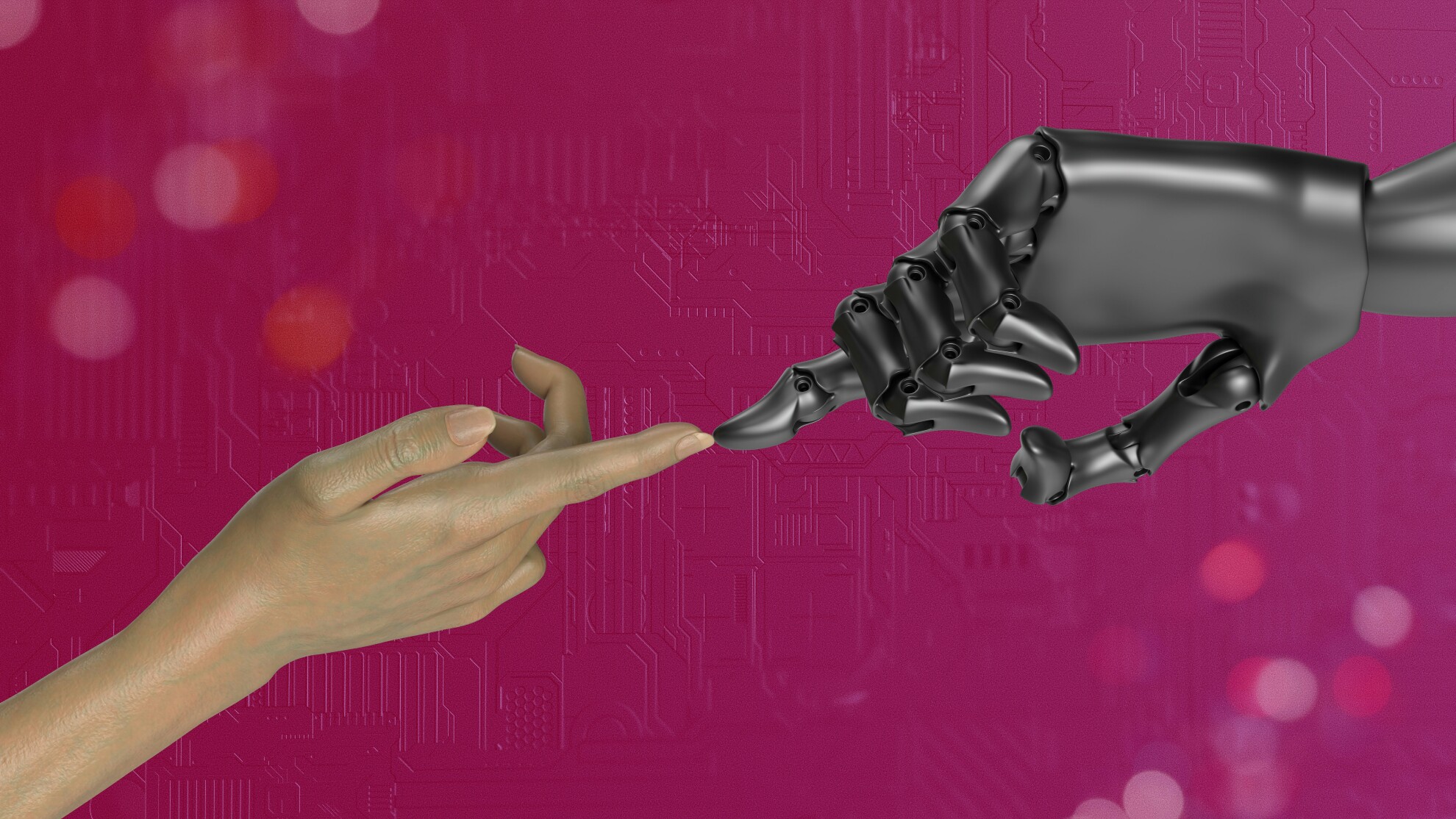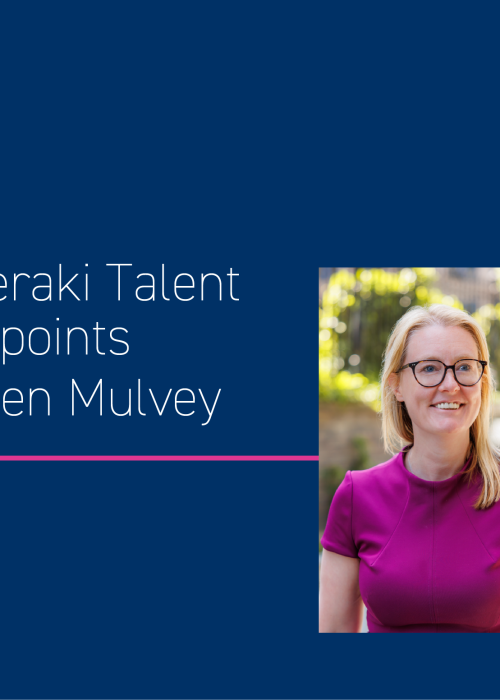
Striking the balance between tech and human touch
| 11/06/2025
As more employers embrace aspects of AI in recruiting, new challenges emerge. From concerns over candidate experience and employer branding, balancing automation with the human touch remains key in recruitment.
Today, AI tools are proving valuable in speeding up various recruiting tasks, from scanning CVs to initial candidate screenings. While some candidates appreciate the speed and objectivity AI brings, there’s a risk of turning away talent if human interaction is lacking.
A 2024 Job Seeker AI survey by Capterra reveals that the majority (60%) of job seekers are more likely to apply for a job if they have the option to speak with a human at any point in the application process. And over half (58%) are more likely to apply if the application states that humans make all hiring decisions.
In the same survey, when asked what they would do if they felt an employer’s interview and application process relied too much on AI, job seekers said they are more likely to turn down a job offer from that employer. This is particularly true with professionals, as those with at least a master’s degree or equivalent level of education (50%) are more likely to not accept a job offer in this case.
Striking the right balance
A survey by Aptitude Research found that 55% of companies were increasing investment in automated recruiting measures. And with increased investment, there can be a tendency to switch on every automation feature in your recruitment software at once. Yet, when it comes to AI and automation, like most IT projects, a gradual rollout is a smarter move.
By introducing one new process at a time, talent acquisition and HR teams can test what works and refine approaches with minimum disruption to the candidate experience or hiring process.
Practical, low-risk ways to build trust
Much research suggests that candidates are most comfortable with AI usage to support fair hiring practices. If your ATS system or software flags biased language in job ads or has a ‘blind hiring’ feature to hide identifying information, start there.
Clarify AI’s role early
The UK government has issued guidance on responsible AI in recruitment, highlighting ethical risks such as bias and digital exclusion. While there is no law mandating the disclosure of AI use to job applicants, transparency is encouraged to build trust and avoid potential legal challenges.
In Capterra’s survey, 47% of job seekers say they are more likely to apply for a job if the job application states when AI is used and what data is collected. Use your careers page and job applications as an opportunity to explain how AI benefits the candidate, whether it’s reducing bias in the hiring process or enabling your recruiting team to evaluate applicants more quickly.
The human touch
Give potential candidates and those in the recruitment process the option to talk to a human at any point. When it comes to candidate experience, the more the recruiting process can be tailored to each candidate, the better the experience.
Improving the candidate experience
Even the best recruiters find creating a personalised candidate experience difficult to do at scale. AI can improve your candidate experience with:
- Faster Responses: AI-powered chatbots can answer candidate queries, reducing wait times for basic information, including job details, application status, and interview times.
- Better efficiency: Recruiters can offload time-consuming tasks and focus on engaging with candidates.
- Increased engagement: With more time, personalised touchpoints can be added to the candidate experience.
- Candidate comms: HR and TA teams can reach candidates using their preferred channels (like emails or text alerts) about relevant job opportunities.
- Personalised recommendations: AI can prompt rejected or shortlisted candidates if their skill set might make them a good fit for a different role or a newly opened role.
- Optimised applications: Some AI tools give real-time feedback on CVs and cover letters. This helps candidates tailor their applications to improve their chances. This could be beneficial in graduate recruitment.
- Bias reduction: AI-driven assessments can focus on skills and qualifications rather than subjective factors, leading to fairer hiring decisions.
- Streamlined interview process: AI can automate scheduling and conduct initial video or text-based interviews. Although this should be used with care.
- Enhanced L&D: AI-powered platforms can recommend training programmes and career development opportunities based on a candidate’s goals.
AI and future-ready hiring
A smart recruiter can spot potential others miss, and AI can do the same. By analysing patterns in skills and career paths, AI can uncover unexpected matches between candidates and roles. That means people with complementary skills can pivot into new areas or departments. With an estimated 85% of 2030’s jobs yet to be invented, the ability to map today’s skills to tomorrow’s needs is more important than ever.
Understanding how and when to use AI is essential. AI technology, while powerful, lacks the human intelligence and judgement needed to assess qualities such as emotional intelligence and potential. Human interaction and assessment remain critical in evaluating a candidate’s suitability beyond what AI provides.


